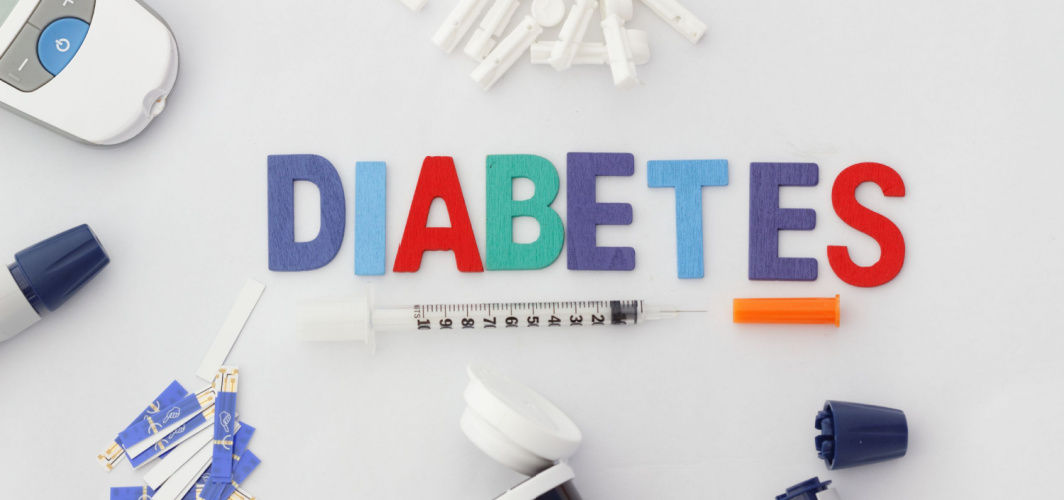Diabetes Management
The Use of DPP-4 Inhibitors for the Treatment of Diabetes
2 min read
By Apollo 24|7, Published on - 21 August 2024
Share this article
0
0 like
.jpg?tr=q-80)
In the fight against type 2 diabetes, Dipeptidyl Peptidase-4 (DPP-4) inhibitors, such as Sitagliptin and Linagliptin, have emerged as a powerful ally. Their unique mechanism of action and significant benefits have made them a preferred choice in diabetes management. This blog offers insights into these oral medications, how they work, their advantages, recommended dosages, and essential considerations for prescribing.
How DPP-4 Inhibitors Work
DPP-4 inhibitors are diabetes medications that work by blocking a specific enzyme in the body. This enzyme normally breaks down certain hormones that help control blood sugar. By blocking the enzyme, these medications allow these helpful hormones to stay longer in the bloodstream. As a result, the body produces more insulin when you eat and less of a sugar-raising hormone called glucagon. This helps lower blood sugar levels. These medications may also have other benefits, like reducing the amount of glucose your liver produces and possibly improving how your pancreas works to make insulin.
Benefits Offered by DPP-4 Inhibitors
DPP-4 inhibitors provide effective blood sugar control with minimal hypoglycemia risk, making them an excellent option for diabetes management. These medications not only avoid weight gain but also promote weight loss, further enhancing their appeal. By reducing blood pressure, insulin resistance, and blood lipid levels, they also contribute to a lower cardiovascular risk, offering a comprehensive approach to managing diabetes without the complexity of complicated dosing schedules.
Guidelines for Prescribing Sitagliptin and Linagliptin
The typical starting dose of Sitagliptin is 100 mg/cycle, taken orally. However, those with renal impairment need a reduced dosage. Linagliptin, on the other hand, has a recommended dosage of 5 mg/cycle and does not require dosage adjustment based on renal function.
Key Considerations Before Prescribing
While DPP-4 inhibitors are effective and generally well-tolerated, factors such as renal function status, potential side effects, and compatibility with other antidiabetic medication should be evaluated before prescribing. Regular monitoring is also vital to assess their long-term safety and efficacy.
To optimise diabetes management, individuals should consider enrolling in a comprehensive programme like the Apollo Super 6. Developed by expert doctors at Apollo, it provides dedicated support and guidance in managing type 2 diabetes through lifestyle changes, personalised plans, expert consultations, and much more.
Diabetes Management
Consult Top Diabetologists
View AllLeave Comment
Recommended for you
.jpg?tr=q-80)
Diabetes Management
Diabetes and Constipation: Causes and Management Strategies
Did you know that diabetes can contribute to constipation? This might sound surprising, but the good news is that it's manageable. Through a combination of lifestyle changes, medication and controlling blood sugar levels, you can effectively manage this digestive issue. Consider enrolling in professional programmes like the Apollo Super 6 to provide you with personalised support in your diabetes management journey.

Diabetes Management
The Connection Between Diabetes and Polycystic Ovary Syndrome
Did you know there's a significant link between diabetes and polycystic ovary syndrome (PCOS)? From insulin resistance being a contributing factor, even women with normal body mass index and PCOS are at an increased risk of Type 2 diabetes. Understanding this link can pave the way for effective diagnosis and management of both conditions. Regular monitoring of blood sugar, following a balanced diet, incorporating regular physical activity, and taking prescribed medications can help.

Diabetes Management
Top 5 Misconceptions About Diabetes- Know The Facts Here!
Diabetes is one of the leading global public health concerns. Despite its increasing prevalence around the world, there are plenty of myths and misconceptions associated with the condition and its treatment. To deal with diabetes, it’s vital to know what’s true and what’s not. So, here is more about some common misconceptions about diabetes and the truth behind them.
Subscribe
Sign up for our free Health Library Daily Newsletter
Get doctor-approved health tips, news, and more.
Visual Stories

8 Fruits That are Incredibly Healthy for Diabetes
Tap to continue exploring
Recommended for you
.jpg?tr=q-80)
Diabetes Management
Diabetes and Constipation: Causes and Management Strategies
Did you know that diabetes can contribute to constipation? This might sound surprising, but the good news is that it's manageable. Through a combination of lifestyle changes, medication and controlling blood sugar levels, you can effectively manage this digestive issue. Consider enrolling in professional programmes like the Apollo Super 6 to provide you with personalised support in your diabetes management journey.

Diabetes Management
The Connection Between Diabetes and Polycystic Ovary Syndrome
Did you know there's a significant link between diabetes and polycystic ovary syndrome (PCOS)? From insulin resistance being a contributing factor, even women with normal body mass index and PCOS are at an increased risk of Type 2 diabetes. Understanding this link can pave the way for effective diagnosis and management of both conditions. Regular monitoring of blood sugar, following a balanced diet, incorporating regular physical activity, and taking prescribed medications can help.

Diabetes Management
Top 5 Misconceptions About Diabetes- Know The Facts Here!
Diabetes is one of the leading global public health concerns. Despite its increasing prevalence around the world, there are plenty of myths and misconceptions associated with the condition and its treatment. To deal with diabetes, it’s vital to know what’s true and what’s not. So, here is more about some common misconceptions about diabetes and the truth behind them.



